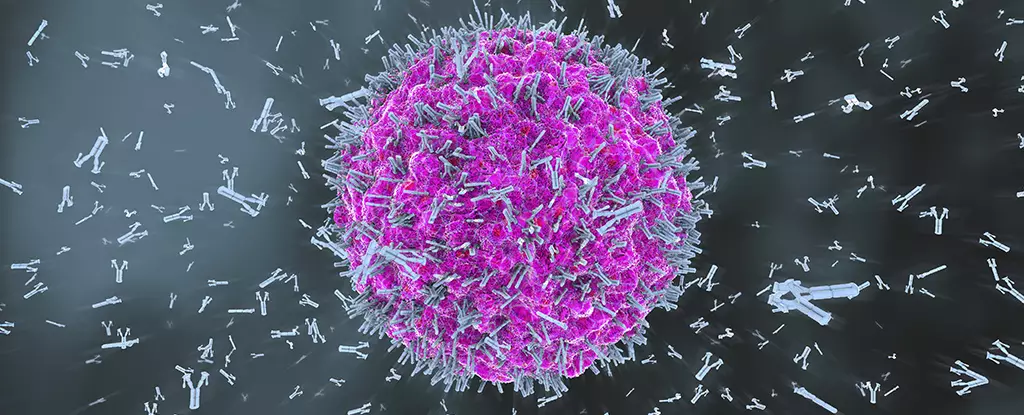The immune system plays a critical role in defending our bodies against invading pathogens. However, when the immune system malfunctions, it can lead to serious health issues. Scientists are constantly striving to understand the intricate mechanisms underlying immune response regulation. A recent study conducted by researchers from the Swiss Federal Institute of Technology Lausanne has shed light on a new ‘switch’ that deactivates a sensor of foreign DNA, providing valuable insights into immune system regulation.
At the center of this discovery is an enzyme called cyclic GMP-AMP synthase (cGAS), which is responsible for detecting infiltrating viruses in the body. When foreign DNA is detected in a cell’s cytoplasm, cGAS triggers a reaction alerting the body to the presence of an invader. However, it is crucial to regulate cGAS to prevent it from attacking healthy cells, especially once it enters the cell’s nucleus.
The study identified a protein complex called CRL5-SPSB3, which plays a key role in regulating cGAS activity. This complex adds a chemical called ubiquitin to cGAS, marking it for disposal when it is not needed. By targeting cGAS for degradation, CRL5-SPSB3 effectively switches off the immune response when there is no threat from foreign DNA, preventing the enzyme from causing harm to healthy cells.
Implications for Autoimmune Disorders
The findings of this study have significant implications for autoimmune disorders, such as type 1 diabetes and inflammatory bowel disease, which occur due to dysregulation of the immune system. Understanding the mechanisms involved in regulating cGAS activity could provide new avenues for developing therapeutic interventions to treat these conditions.
Future Directions for Research
By uncovering the role of protein degradation in immune system regulation, this research opens up new possibilities for exploring novel approaches to modulating immune responses. Further studies are needed to delve deeper into the mechanisms controlling cGAS activity and to explore the therapeutic potential of targeting protein degradation pathways in immune-related disorders.
The study on the regulation of cGAS activity through protein degradation provides valuable insights into the intricate mechanisms governing immune system responses. By understanding how cGAS is controlled, we may be able to develop more effective strategies for maintaining a balanced immune response and treating autoimmune disorders. This research highlights the importance of protein degradation as a crucial determinant of immune system regulation and raises exciting possibilities for future research in this field.


Leave a Reply